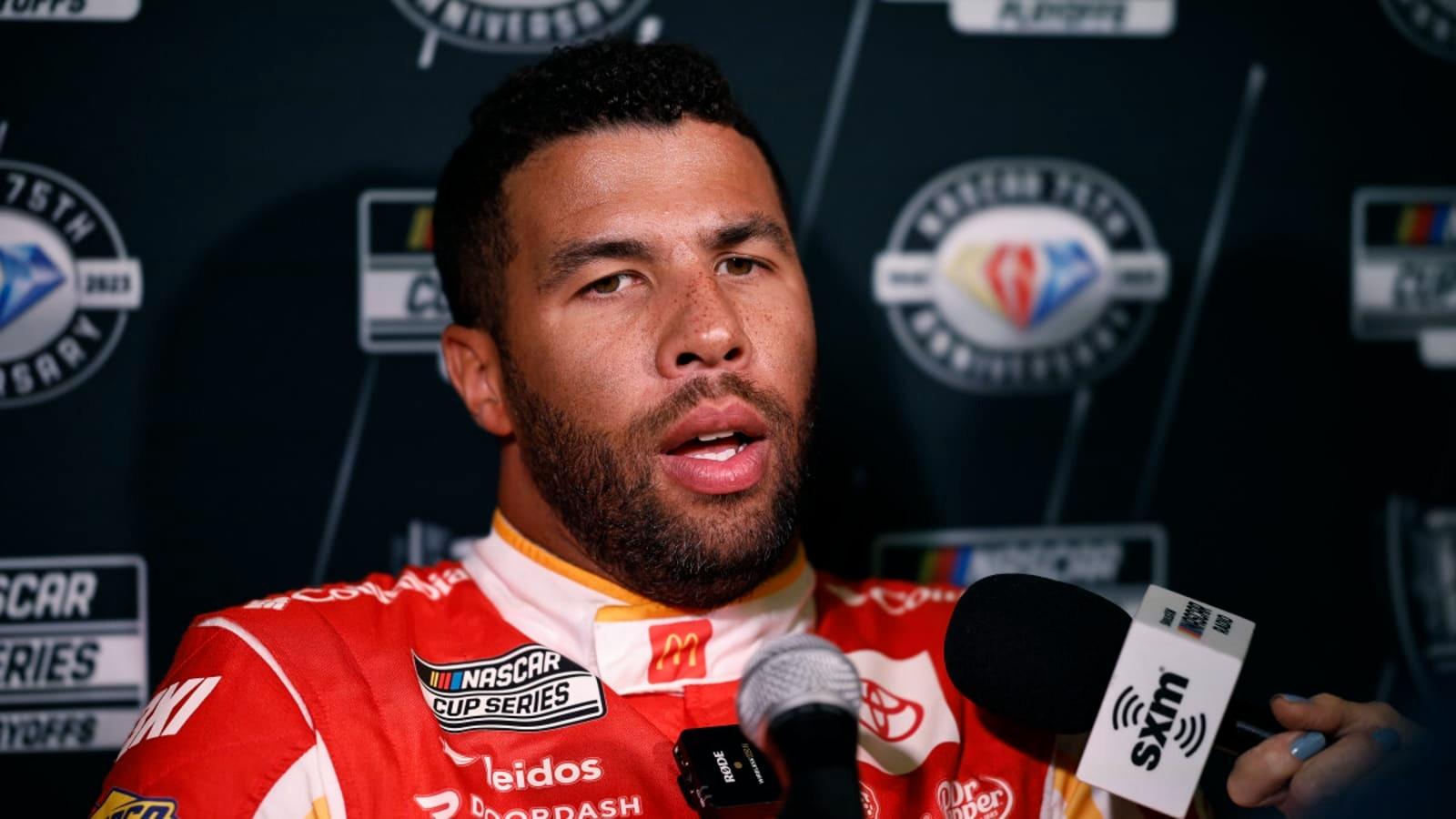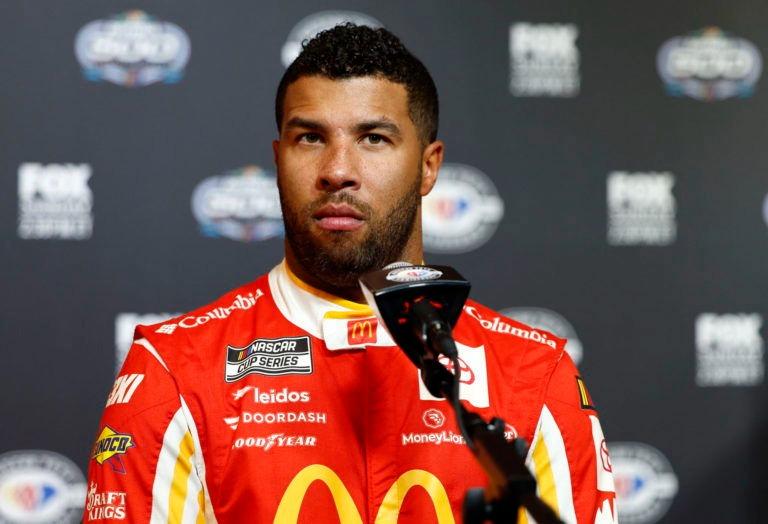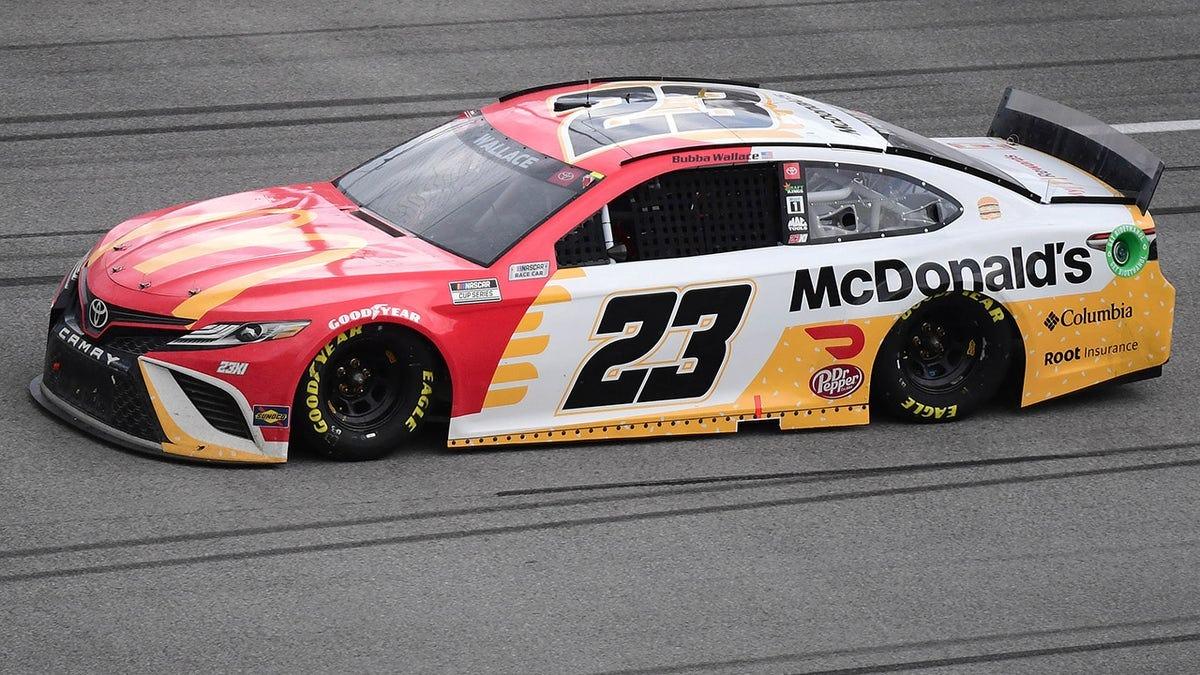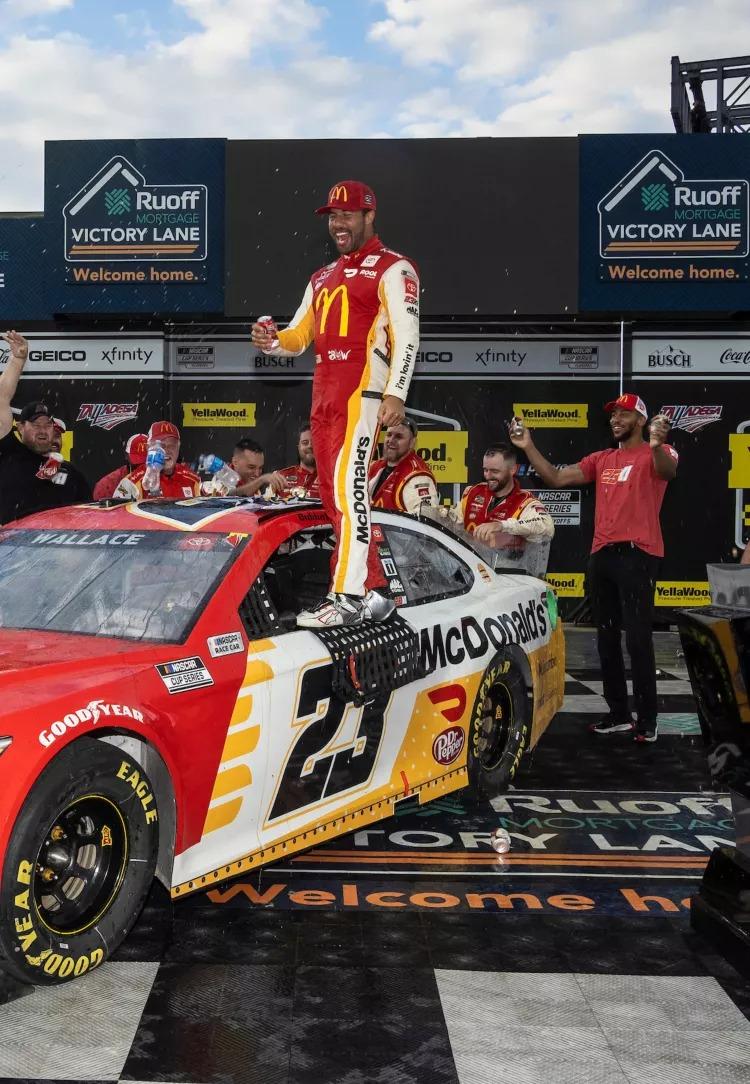Bubba Wallace’s landmark victory at the Talladega Superspeedway playoff race, a moment celebrated as a breakthrough in NASCAR history, has now been thrust into controversy. The 27-year-old driver, only the second Black man ever to win a NASCAR Cup Series race, crossed the finish line as heavy rain forced the event to be called off. For many fans, the victory was an overdue recognition of Wallace’s skill and perseverance in a sport long dominated by white drivers. But almost immediately, a bold criticism surfaced, claiming that the win was not earned but merely a product of luck brought on by weather conditions.

The accusation, posted on social media and quickly picked up by sports talk shows, ignited a firestorm. Critics argued that without the rain, Wallace might have lost his lead in the remaining laps. Supporters countered that racing under unpredictable conditions is part of the sport’s reality, and Wallace had positioned himself expertly before the stoppage. The debate swiftly spilled beyond NASCAR’s usual audience, becoming a flashpoint for discussions about race, fairness, and the way achievements are judged.

Wallace himself addressed the controversy with measured words, thanking his team and fans while emphasizing that every driver on the track faced the same conditions. “We ran the race we were given,” he said. “We earned that position lap by lap.” His statement drew applause from many in the NASCAR community who noted that weather-related race stoppages have historically benefited other drivers without sparking the same level of scrutiny. The difference, they suggested, lay in Wallace’s visibility as a barrier-breaking figure and his outspoken advocacy for diversity within the sport.

The storm around his victory has also highlighted NASCAR’s complicated relationship with its own history. Wallace’s win at Talladega carried symbolic weight, coming at a track once infamous for its association with Confederate flags and resistance to integration. To some, the criticism leveled at him now feels like an attempt to diminish progress rather than a fair analysis of race tactics. Prominent commentators have pointed out that similar victories under rain delays have often been celebrated without question when achieved by white drivers.

Yet the controversy shows no sign of fading. Talk radio callers debate whether NASCAR should change its rules for rain-shortened races. Columnists question whether social media amplifies skepticism against certain athletes. Sponsors are monitoring the public reaction closely, aware that Wallace’s brand represents both opportunity and risk in a polarized environment.
Through it all, Wallace remains focused on the next race. His determination to prove his critics wrong on the track, rather than online, may end up redefining this chapter of his career. Whether seen as a historic triumph or a lucky break, his Talladega win has already changed the conversation — not just about who can win in NASCAR, but about how wins are valued when they challenge the sport’s old narratives.





